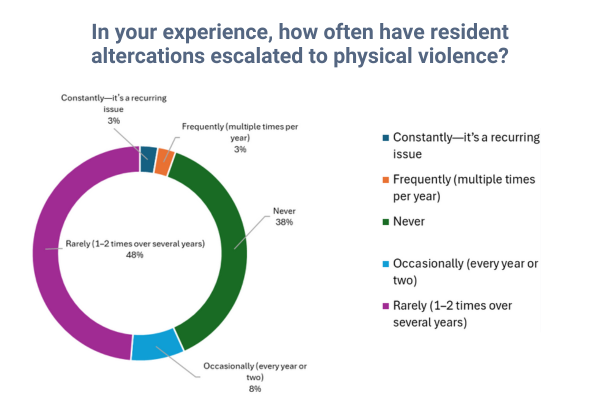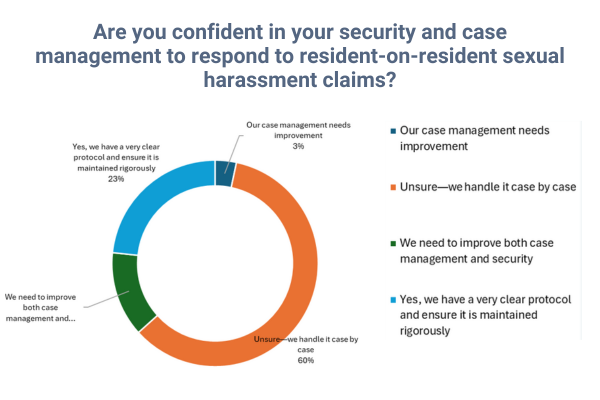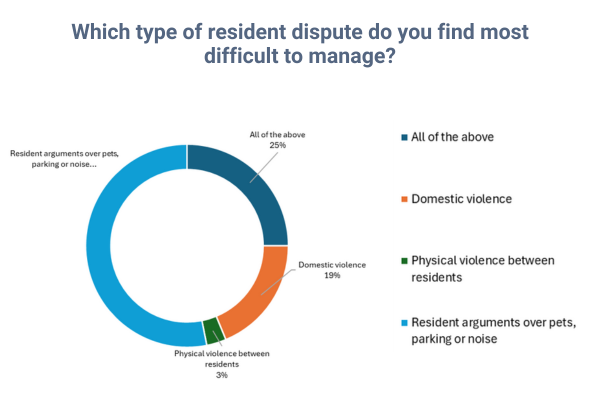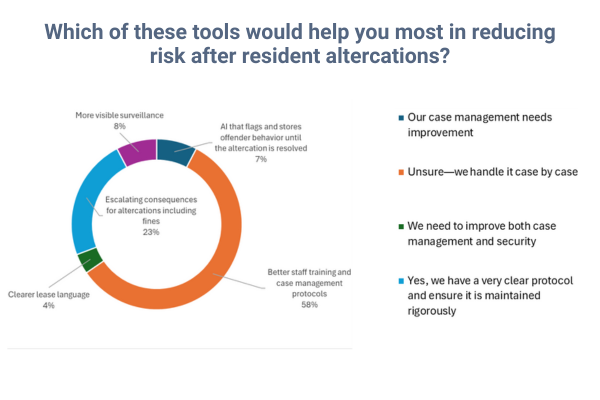How Trespassing Impacts Multifamily Property Security
CSAI Blog
READ NOW
Blog

By Kathleen Hannon, Senior Director of Communications, Cloudastructure. A former agency director, Kathleen has led messaging strategy for tech, security, manufacturing, and higher ed brands for more than a decade. Kathleen writes and produces Cloudastructure’s educational content for multifamily property professionals, including blogs, webinars, campaigns, case studies and white papers. She’s also the award-winning author of two young adult novels.

A recent Multi-family Crime Poll [MFCP] conducted during the webinar Resident Altercations & Landlord Liability: What Every Multi-Family Owner Needs to Know with attorney Melinda McBeth of Offit/Kurman reveals some alarming trends about how property managers are dealing with resident conflicts and the growing risk of liability claims.
The risk is palpable, McBeth pointed out. “I used to handle 3-4 liability cases per year. I’m now handling that many per month.”
The poll surveyed 37 property managers actively engaged in multi-family property management and sought to understand the frequency of resident altercations, types of disputes most challenging to manage, confidence in existing protocols, and tools needed to mitigate risks effectively.
Frequency of Physical Violence:
Most respondents reported that physical violence resulting from resident altercations is rare, occurring 1-2 times over several years. However, some acknowledged occasional or frequent violent incidents. Even 1-2 per year provides significant risk.

Liability Concerns:
While only a small number have faced actual liability claims from resident altercations, the majority expressed concern or uncertainty about their organization's liability risk, highlighting a growing area of vulnerability.
Multi-family properties are the #1 site for sexual assault cases nationally, and a full 42% of security negligence claims stem from assault and battery cases. Standardization of security protocol and case management is essential.

Confidence in Security & Case Management Protocols:Alarmingly, only a minority of property managers feel confident that their teams have clear, rigorous, and legally compliant protocols—especially for handling resident-on-resident sexual harassment claims.

Tools Needed to Reduce Risk:
The poll highlighted a strong demand for enhanced tools and strategies, including:

The MFCP results indicate a significant gap between the frequency of resident disputes and the readiness of property managers to handle them effectively. Handling these altercations inadequately can increase the risk of costly liability claims and violations of the Fair Housing Act (FHA).
Fair Housing Act violations may occur if property owners or managers fail to respond properly and promptly to resident-on-resident discrimination or harassment for any protected class, including race, religion, gender, and domestic violence victims. Violations not only expose properties to legal penalties but also damage community trust and resident retention.
The vulnerability shown in the poll points to a crucial need for multi-family property managers to:
The Multi-family Crime Poll underscores that while resident altercations may not be daily occurrences, the risks they present are growing and the cost of inaction can be very high. Property managers must close the protocol and resource gaps to safeguard both their properties and communities from the legal and safety challenges posed by resident conflicts.
.png)
Watch the Resident Altercations and Landlord Liability webinar here
Already know you want to improve your risk management strategies and security posture?






